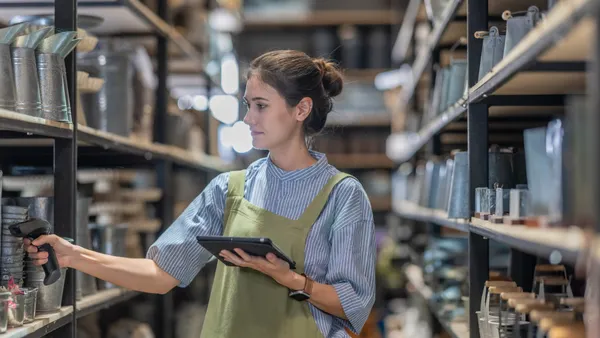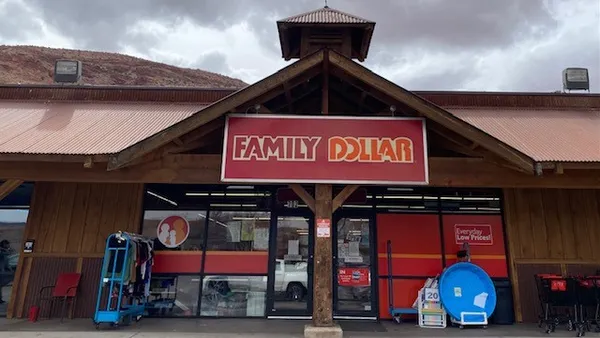Dive Brief:
- The pandemic resulted in more shippers looking for surge management in the first quarter, executives on XPO's first-quarter earnings call Tuesday. But this was not enough to bolster the company's revenue, which was down in its transportation and logistics segments as some of the company's customers shuttered operations due to the pandemic.
- "Like others in the industry, we experienced a surge in volume late in the quarter from customers and the consumer staples sector, both producers and retailers," XPO Chief Strategy Officer Matt Fassler said on the call. "This was related to meeting increased demand for food and dry goods as people stayed at home."
- XPO began experiencing the effects of the coronavirus pandemic toward the end of the first quarter, CEO Brad Jacobs said on the company's earnings call Tuesday. "It started with our European operations in early March and began to affect parts of our North American business later in the month," Jacobs said.
Dive Insight:
XPO's experience was more or less par for the course in the first quarter with other transportation providers citing similar trends in April earnings calls.
Producers and retailers reached out to XPO for surge capacity in the first quarter, an XPO spokesperson told Supply Chain Dive in an email.
"One anecdote: A large wholesale retail chain reached out in mid-March saying they were expecting a 50% increase in volume over the next six weeks," the spokesperson said. "We were able to handle a lot of that excess volume for them. We're still working with them. Demand is still really high."
Grocers have experienced an uptick in demand as restaurants and stores have closed during the pandemic and consumers stockpiled goods. Volume increases like this are usually seasonal and shippers have time to plan, hire and buy the necessary resources. But many shippers were left flat-footed and scrambling.
"This large demand spike created major challenges in our operations network," Amazon CFO Brian Olsavsky said on the company's earnings call last month. Amazon usually "spends months ramping up for these periods," Olsavsky said.
And XPO wasn't the only logistics company to see this play out on its network.
"Consumer shopping migrated online, triggering a surge in volume growth led by multiple large UPS customers," UPS CFO Brian Newman said last month.
Jacobs said he is bearish on the market in the short term but confident in XPO's performance moving forward, citing cost-cutting measures and investments in automation. Still, the company, like everyone else, is unsure when things will turn around.
"We don’t know how the pandemic is going to play out," Jacobs said.
And while there were companies coming to XPO to ask for increased surge capacity, it wasn't enough to offset revenue declines. Revenue for the first quarter fell to was $3.86 billion compared with $4.12 billion for the same period in 2019.
XPO will benefit when automotive companies resume production in the coming weeks, executives said. The auto industry makes up "mid-single digits" of the company's revenue. U.S. auto manufacturers have been shutdown since mid-March.
One bright spot was the increased demand in e-commerce, which Jacobs said, "saved us in April, frankly."
"It's a great business to be in right now because it's not a cyclical phenomenon," he said, adding that "we expect some of these behavioral changes that are taking place during the pandemic to continue post-pandemic."














